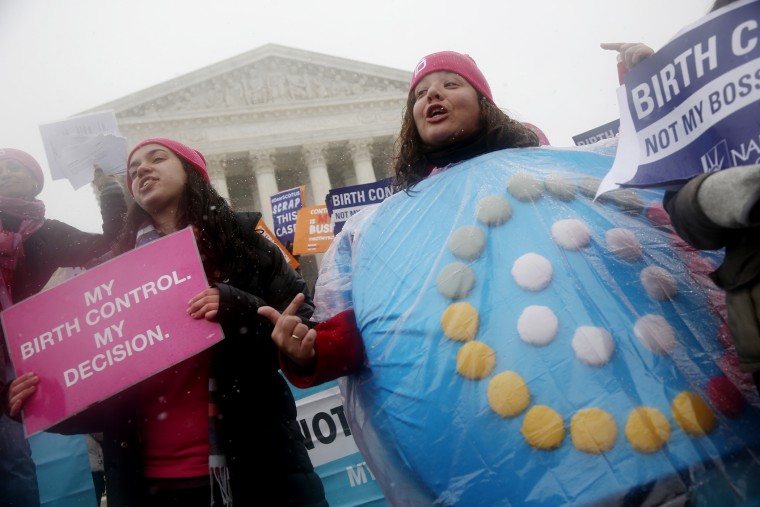One Missouri lawmaker has taken the fight against birth control coverage to a new and very personal place: His own daughters, two of whom are adults.
State Rep. Paul Joseph Wieland and his wife Teresa are suing the Obama administration over its minimum coverage requirements for health plans under the Affordable Care Act, which includes contraception. They say the government is forcing them to violate their religious beliefs because they have three daughters, ages 13, 18 and 19, who are on their parents’ plan and might get birth control at no additional cost.
"The employees are to Hobby Lobby what the daughters are to Paul and Teresa Wieland."'
The Wielands' case was filed before the Supreme Court ruled in Burwell v. Hobby Lobby that private employers could deny contraceptive coverage to their employees, but they say that decision strengthens their case.
“The employees are to Hobby Lobby what the daughters are to Paul and Teresa Wieland,” Timothy Belz, an attorney from the conservative Thomas More Society, who represents the Wielands, told a panel of three federal judges on the appeals court in St. Louis on Monday. A district court had dismissed the case, saying the Wielands lacked standing to sue.
Belz also said that making birth control more accessible under health plans was “as though the federal government had passed an edict that said that parents must provide a stocked unlocked liquor cabinet in their house whenever they’re away for their minor and adult daughters to use, and Mormons came in and objected to that. It is exactly the same situation.”
One of the judges pointed out that parents might have more control over their kids than employers, and that parents could just say to their kids, “We expect you do abide by our religious tenets.” Belz replied, “Well, we all have high hopes for our kids, that is true. We all expect and want them to obey us, they don’t always ...”
In other words, the Wielands are asking the federal government to enforce their parental guidelines on their daughters. It may sound outlandish, but plenty of people thought Hobby Lobby and related cases were outlandish when they were filed, too.
Gretchen Borchelt, senior counsel at the National Women's Law Center, told msnbc, "It’s just another attempt to undermine the health care law. Wieland wants each individual to be able to pick and choose which specific medical services would be covered in a plan. Under his theory, an employer could be forced to create an individualized plan for each employee depending on their objections – one plan that doesn’t cover contraception, one plan that doesn’t cover vaccinations, one plan that doesn’t cover maternity coverage. Who knows where it would end? It radically undermines the principle of insurance and undercuts the purpose of the health care law, which is to standardize benefits and ensure everyone has comprehensive coverage."
The Wielands have argued in their brief that providing health coverage to their daughters – which, thanks to the same Affordable Care Act, they can do until their children turn 26 – is also part of their religious beliefs. “The Plaintiffs cannot terminate their daughters’ health insurance coverage without violating their religious duty to provide for the health and well being of their children,” they wrote in one brief. Hobby Lobby made a similar argument about providing coverage to their employees, which the Supreme Court majority in that case accepted.
Since Wieland is a public employee, the family gets its coverage from the Missouri Consolidated Health Care Plan, which they say let them opt out of such coverage before the Affordable Care Act. In 2012, Missouri's U.S. Senator Roy Blunt sponsored an amendment that would have allowed any employer to opt out of any kind of coverage, which failed in the Senate.
Wieland, who is running for state senate this year, has a 100% rating from Missouri Right to Life. Also this week, the Missouri state legislature is meeting for what is expected to be a close vote to override Gov. Jay Nixon's veto of a law that would require abortion patients to wait 72 hours before their procedure.
